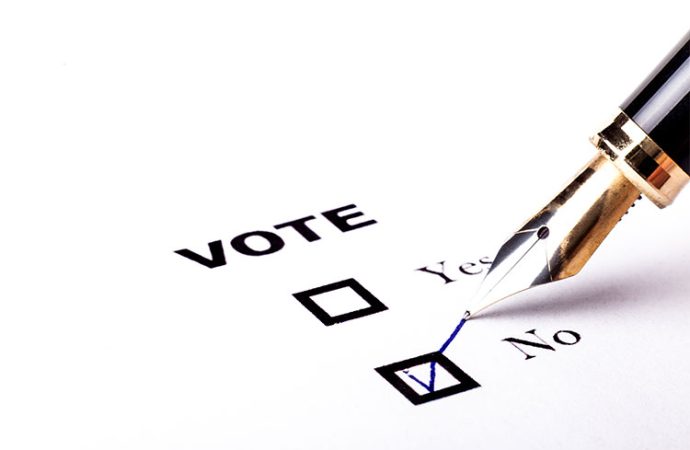Author Recent Posts Rabia Anwaar Latest posts by Rabia Anwaar (see all) Reignited Pak-Afghan Tensions: What Could Be the Way Forward? – November 4, 2025 Geopolitics and the Future of Gaza: Who Are the Real Stakeholders? – October 15, 2025 Iran’s Nuclear Ambitions and Israel’s Aggressive Dominance in the Region – July 15, 2025
The U.S. presidential elections are of paramount importance for Pakistan as they cast a significant impact on foreign policy and diplomatic relations with Pakistan. Foreign policy is the epicenter of U.S. electoral debates as the outcome will definitely impact its partners and allies. In case of Pak-U.S. relationship, they both share a complicated affair with each other, depending on historical geopolitical interests since cold war era. Change of leadership in America reflects change of stance in critical areas of bilateral relationship such as military and economic assistance, development cooperation and trade ties. Noam Chomsky once said, “Every United States (U.S.) President comes with a new doctrine, that significantly impacts global geopolitics”, which is nothing but truth. U.S. policy decisions on global issues such as the stance toward China and the approach to South Asian geopolitics will influence Pakistan’s foreign policy decisions, necessitating a balance between its ties with the U.S. and its longstanding economic and strategic relationship with China.
As a result of U.S. elections 2024, Donald J. Trump has been announced as the 47th U.S. President, securing a major victory against Kamala Harris. President trump holds a corporate mindset and a successful business background thus, his outlook will more and less be transactional. He was not fond of multilateral partnerships during his first tenure and maintains the same in his second. Bilateral approaches of the Trump administration are ambiguous vis-à-vis Pakistan. However, it is believed that his outlook towards South Asia will focus on two main aspects of regional security i.e. counter-terrorism and India Pakistan bilateral relationship. But there are chances that he would have his minimum involvement in regional issues and regional players will exert themselves forcefully.
The Pakistan-U.S. relationship, during the first presidency of Donald Trump, was at ebb and flow. Initially, he took a harsh stance on Pakistan, criticized its counter-terrorism measures on which Pakistan responded that the U.S. has turned Pakistan as ‘scapegoat’ for its failures in Afghanistan. However, by the end of his presidency, he had also initiated the historic peace process with the Afghan Taliban, relying on Pakistan as a key facilitator. The current stance of incumbent presidency is yet to be determined. President Trump, perhaps, ask Pakistan to meet strict conditions regarding cross-border militancy while reducing aids and cuts down developmental budget whereas, on economic front, his approach maybe transactional. He might explore trading lines and ways, instead of aid and economic assistance, shifting his focus to economic partnerships. This will eventually be in favor of Pakistan, as it will gradually lead to less reliance on U.S. economic aid and assistance, which is literally hard but not impossible.
The US government’s stance towards Pakistan also includes its immigration policies that has a direct bearing on Pakistan’s security, trade and economy. For Pakistan, U.S. immigration policies influence remittances, skilled labor migration, educational exchange programs and overall bilateral relations, affecting key economic and social metrics. Considering Donald Trump’s posture on Muslim migrants, Pakistan migrants will likely face a hard time. Currently, the U.S. hosts a large Pakistani diaspora, with over 625,000 Pakistani-Americans contributing roughly one-third of Pakistan’s annual remittances. According to State Bank of Pakistan, the total worth of remittances Pakistan received, alone from U.S. is $8.7 million. During Trump’s previous administration, the “Muslim Ban” heightened tensions and caused unease in Pakistan, impacting diplomatic relations and cooperation on security as well as economic issues. Thus, U.S. immigration policies extend beyond individual travel and visas, shaping a complex milieu of U.S.-Pakistan relations, trade, and Pakistan’s economic stability.
As the U.S.-China rivalry is getting intense with each passing day; Pakistan hopes not to become a victim of crossfires between the two major powers. With Trump, the rivalry would likely intensify further, as he vowed his approach towards China will be more competitive and confrontational. Trump’s return to office brings once again a resumption of tariffs, this time 60% on all Chinese goods and aggressive rhetoric, framing China not only as a competitor but as a major threat to American economic and national security. As the U.S.-China rivalry escalates, Pakistan’s close alignment with China on projects like CPEC may draw U.S. scrutiny, potentially leading to pressures to limit cooperation with China. This rivalry could impact Pakistan’s strategic, economic and security choices, given its longstanding alliance with China and its economic and security dependence on the U.S. However, as the U.S. shifts its focus toward countering China’s influence in the Indo-Pacific, it might expect Pakistan to adopt a more neutral stance on China.
Another most important strategic factor in Pak-U.S. relationship is, India. In international relations, relative power holds a strong ground while viewing one’s adversary in realist paradigm. The U.S.–India relationship has gone from strength to strength over the last three decades with increased cooperation in strategically important sectors from defense to technology and a range of bilateral and multilateral initiatives. Though, India has been a principal ally of the U.S. and counterweight to China in Indo-Pacific region, this overly optimistic view of bilateral ties still needs to be toned down to realistic grounds, especially when the American presidency is run through Trump. He would likely pursue a more transactional approach with greater scrutiny of the trade imbalance and (legal and illegal) migration. He recently referred to India as an ‘abuser’ of global trade regime, while also praising Modi. Moreover, strengthened relationship with India could mean India would use this leverage against Pakistan on multiple platforms to further alienate Pakistan from the world. Pakistan can do nothing in curtailing the growing dynamics of Indio-U.S. relations, but can and must work on its own diplomatic relationship with the U.S. to add benefits to its strengths while overcome its insecurities vis-à-vis India.
The U.S. elections could not be as much important to Pakistan as it is for the U.S. itself but its importance holds clear weightage to shape Pakistan’s defense and economic ties with US and its diplomatic clout. Pakistan, must learn now from its past and transform its relationship with the U.S. in a way more comprehensive manner than before. Pakistan needs to diversify its channels of bilateral relationship; not only traditional but non-traditional security issues should also be prioritized while forging relations with the U.S. which includes technology, development, defense and trade not aid. On the basis of past experiences and Trump’s transactional approach, Pakistan can hope for a positive trajectory of relations with U.S.
- Reignited Pak-Afghan Tensions: What Could Be the Way Forward? - November 4, 2025
- Geopolitics and the Future of Gaza: Who Are the Real Stakeholders? - October 15, 2025
- Iran’s Nuclear Ambitions and Israel’s Aggressive Dominance in the Region - July 15, 2025






















Leave a Comment
Your email address will not be published. Required fields are marked with *